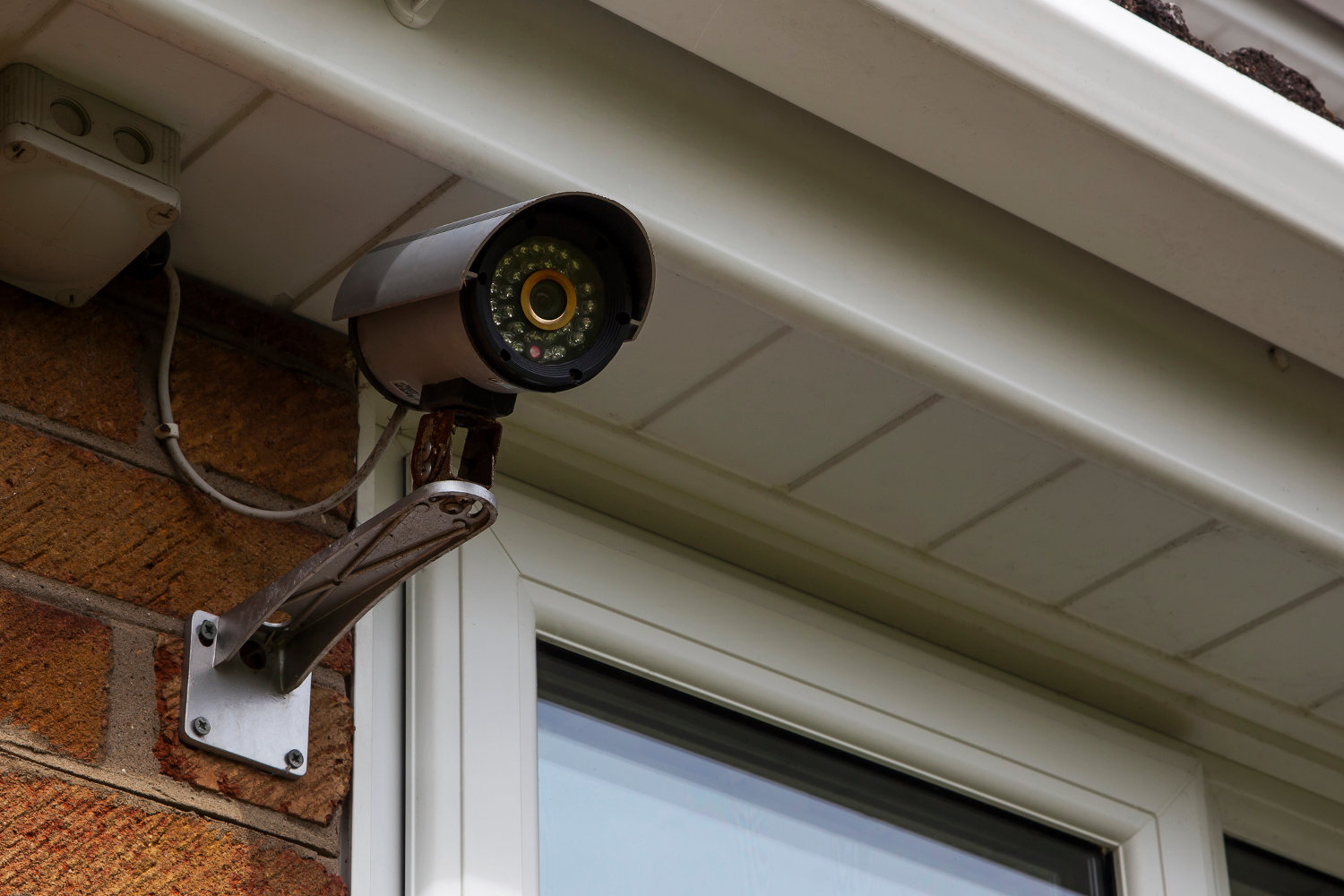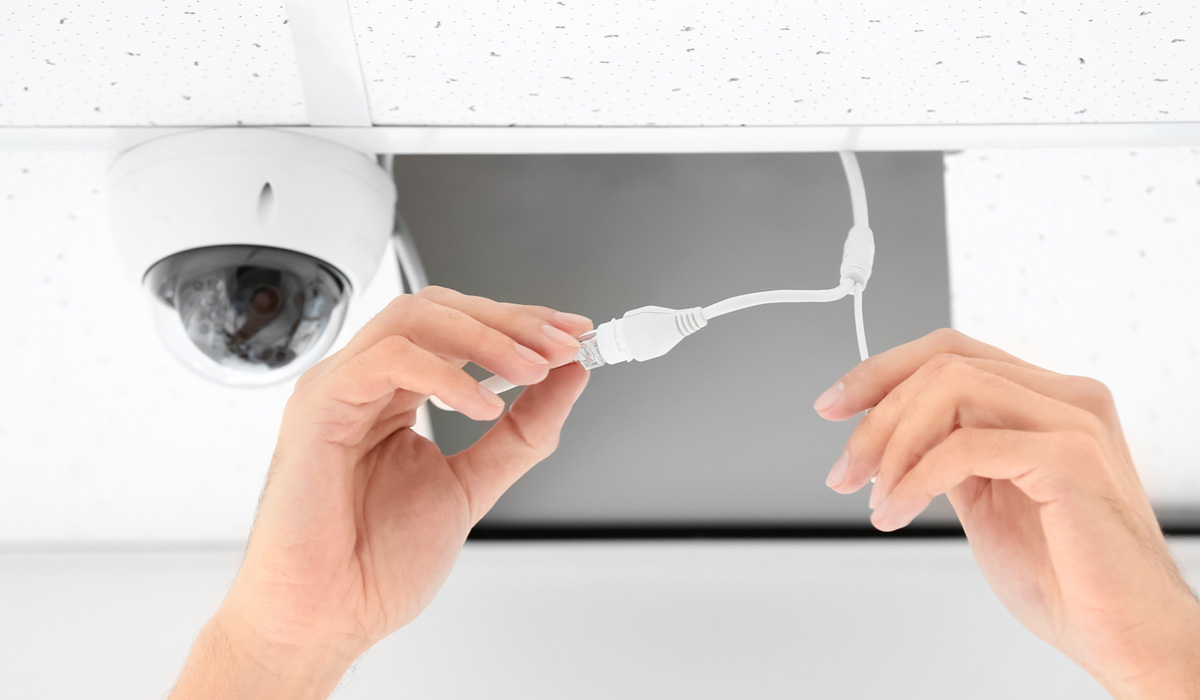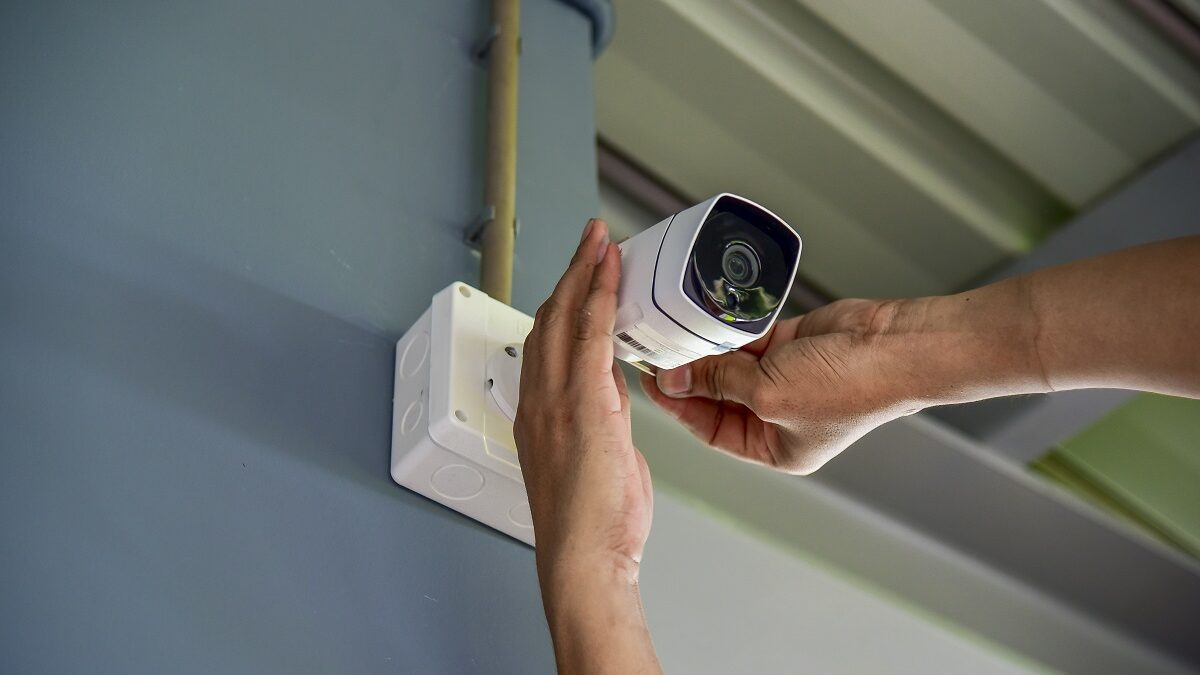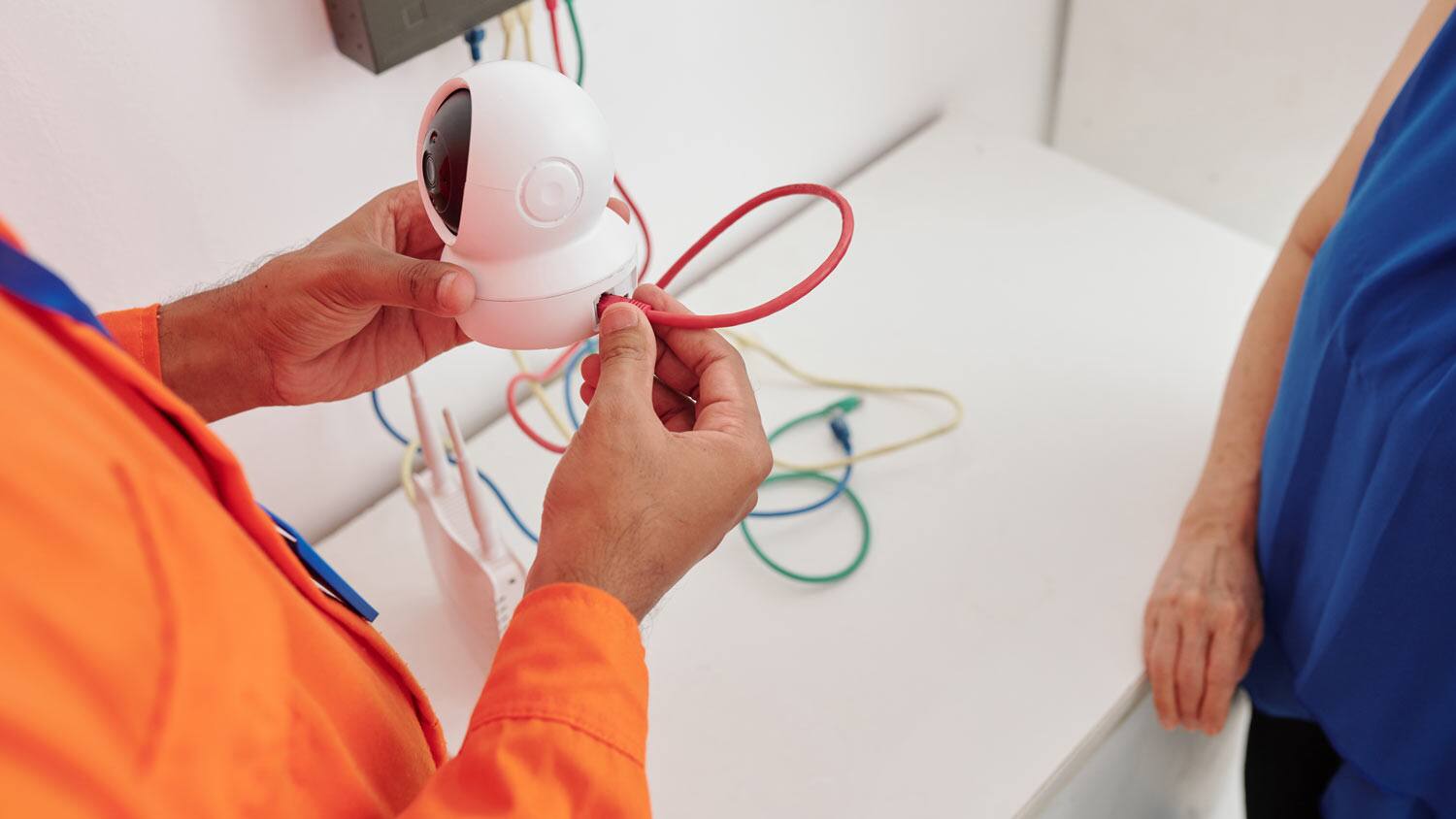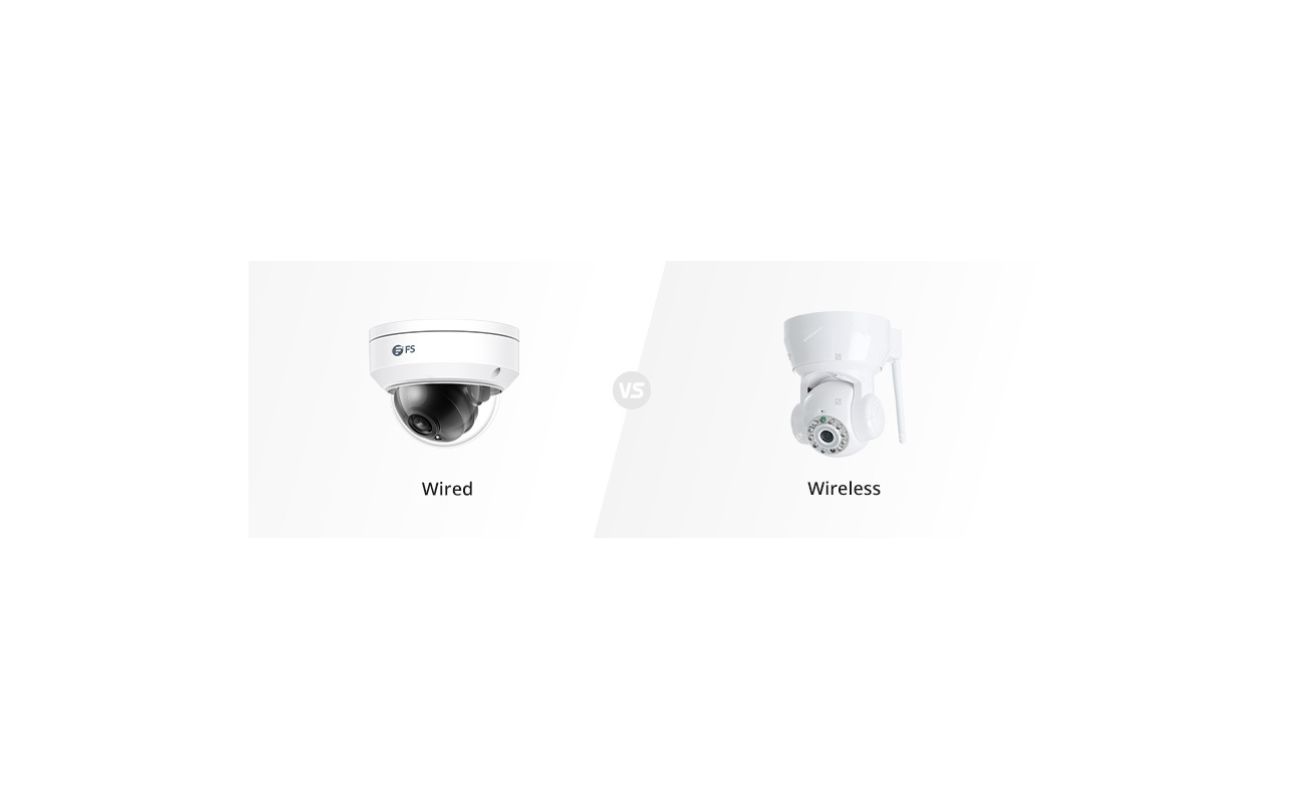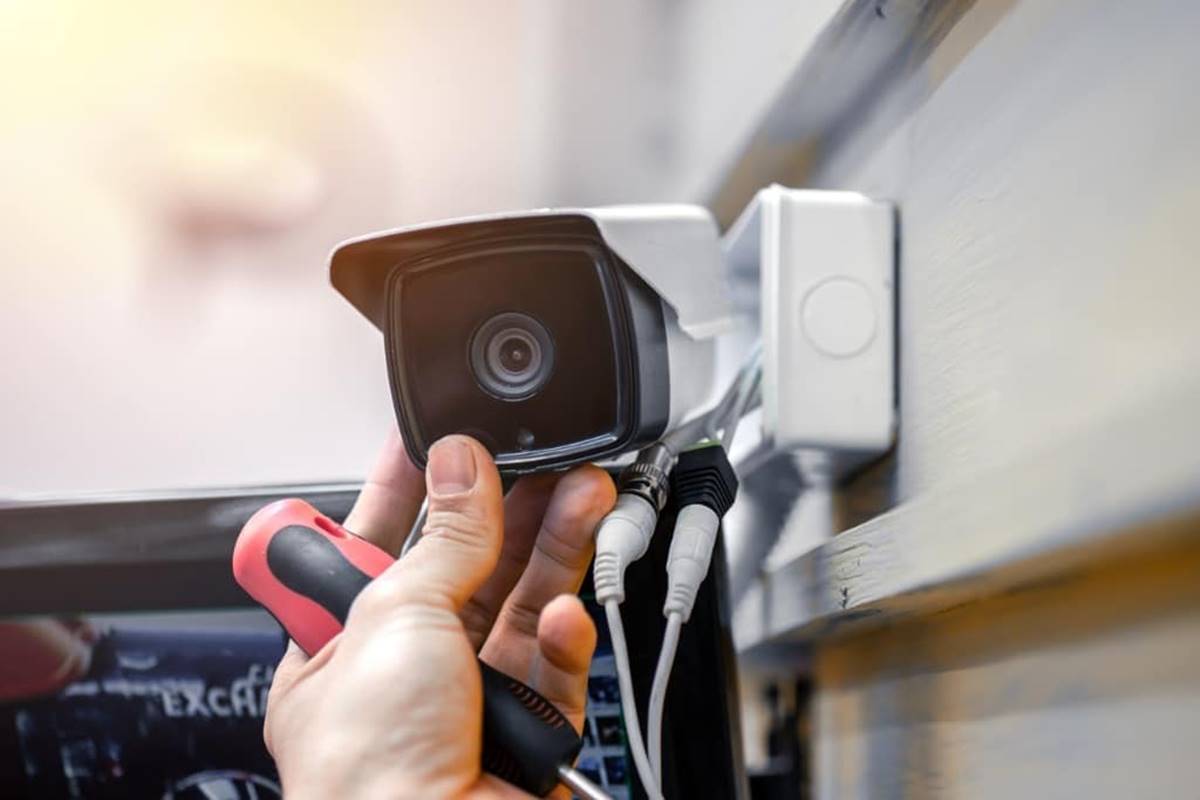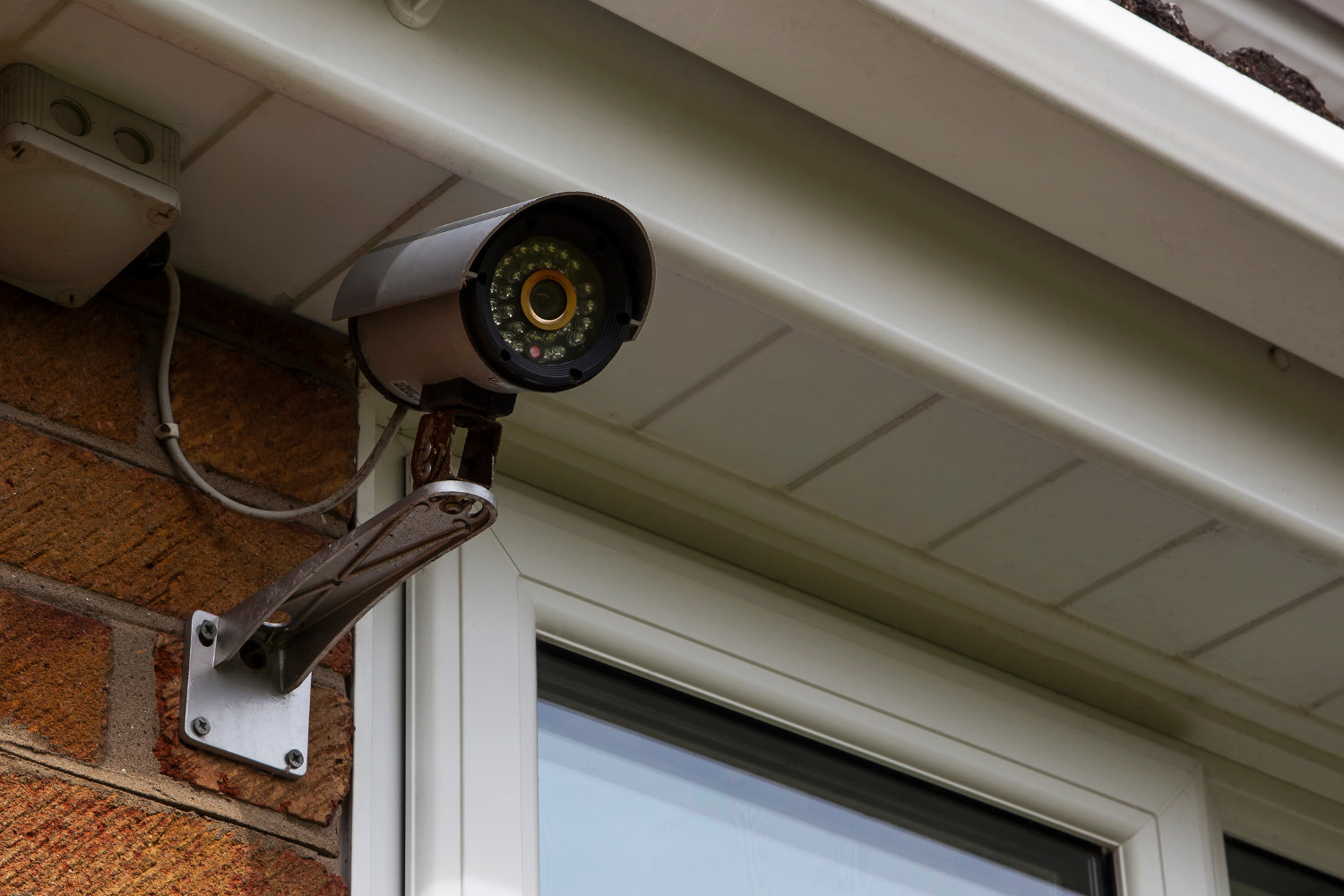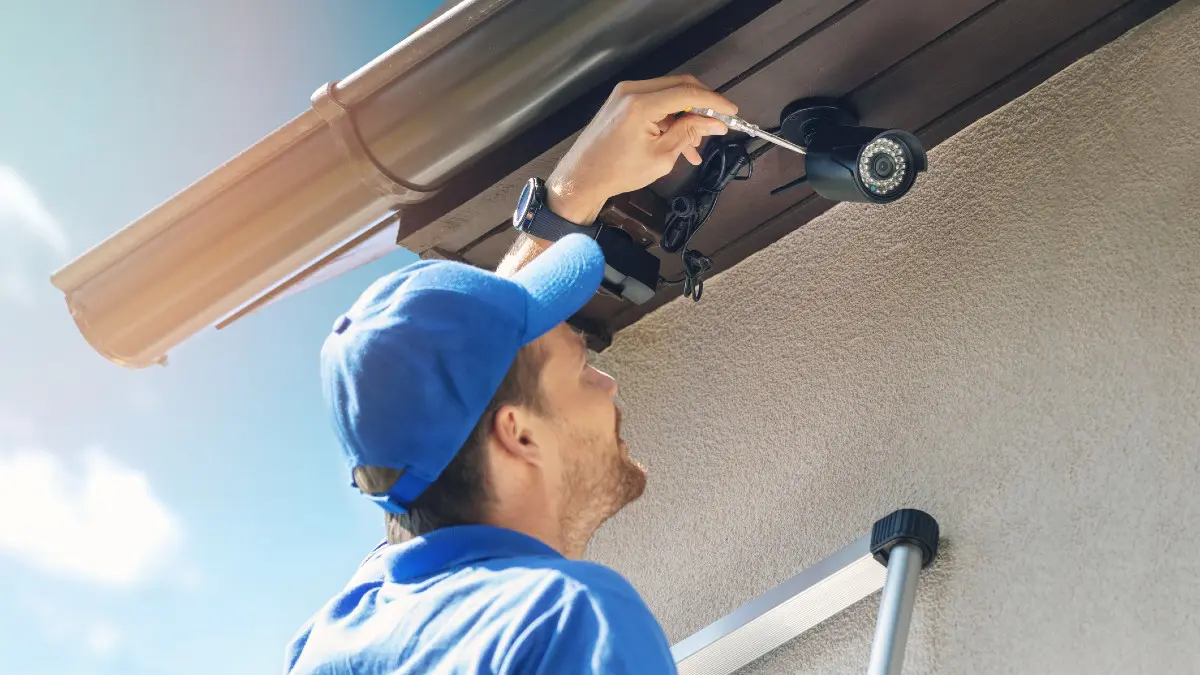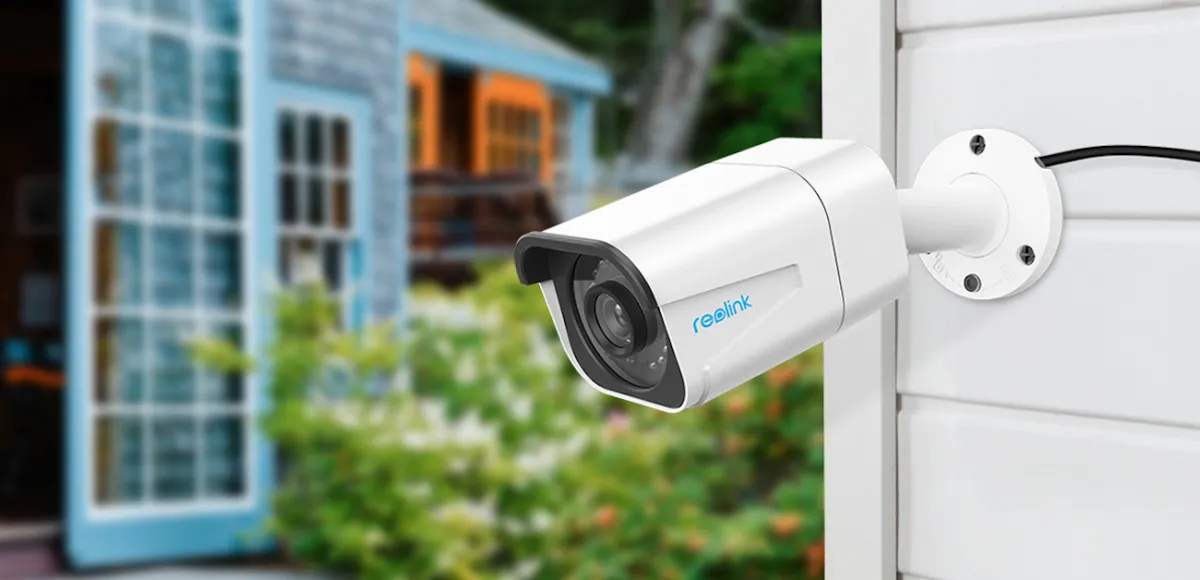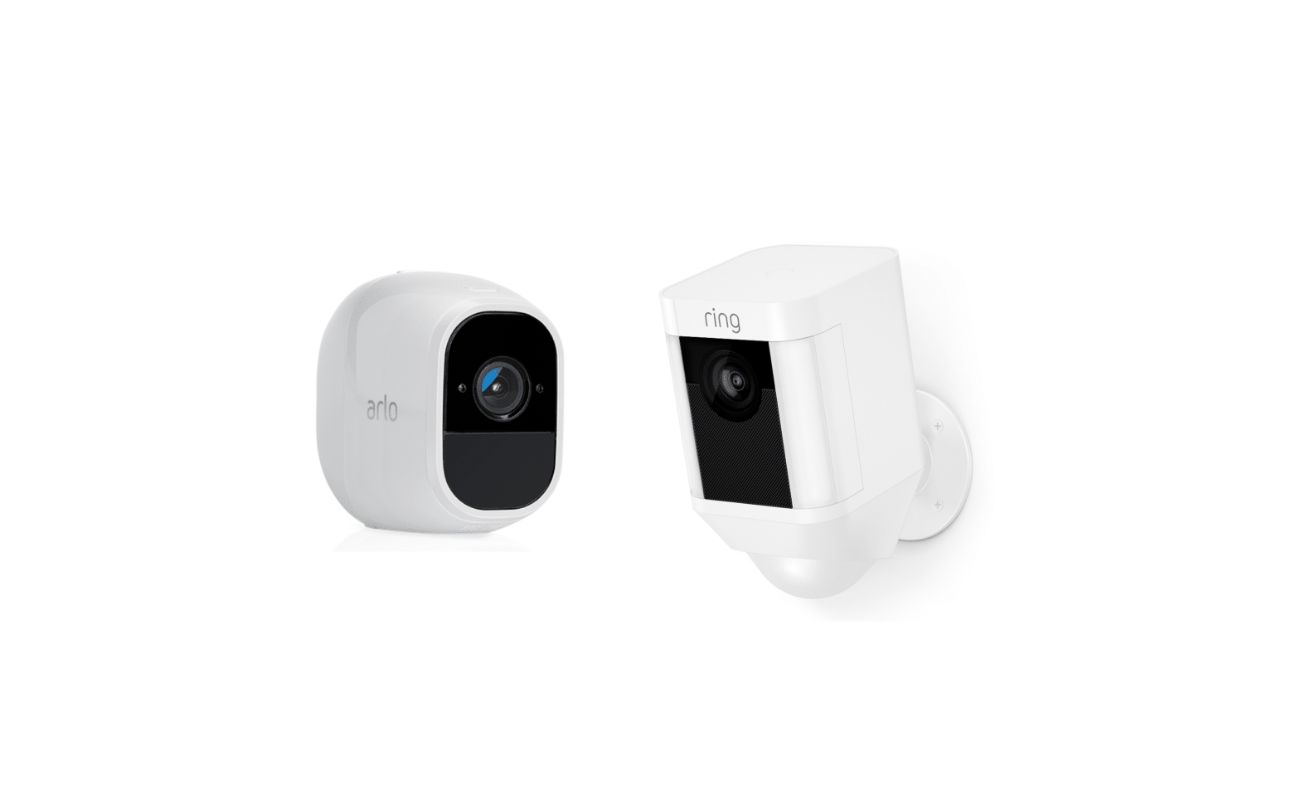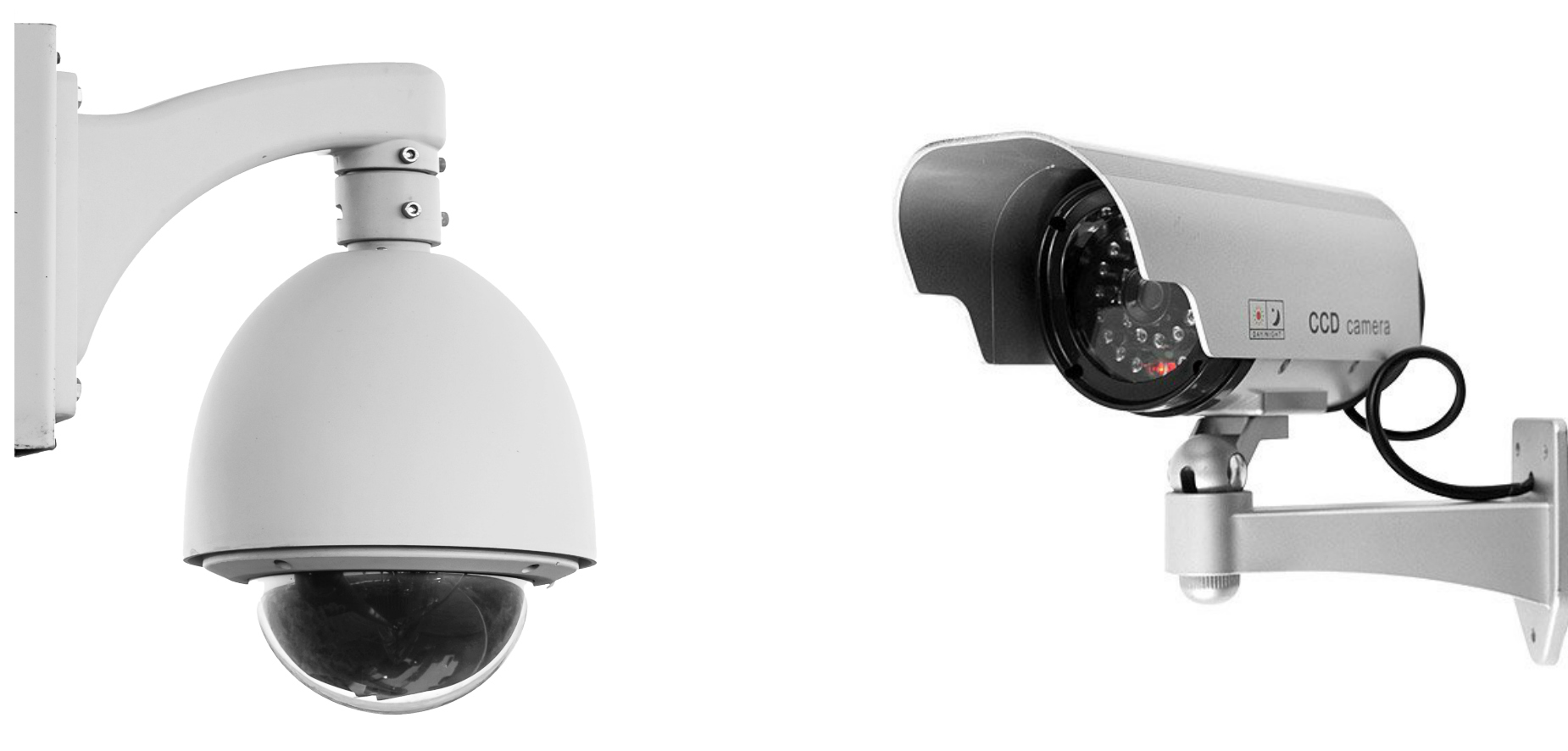Home>Home Security and Surveillance>What Is A Wired Security Camera
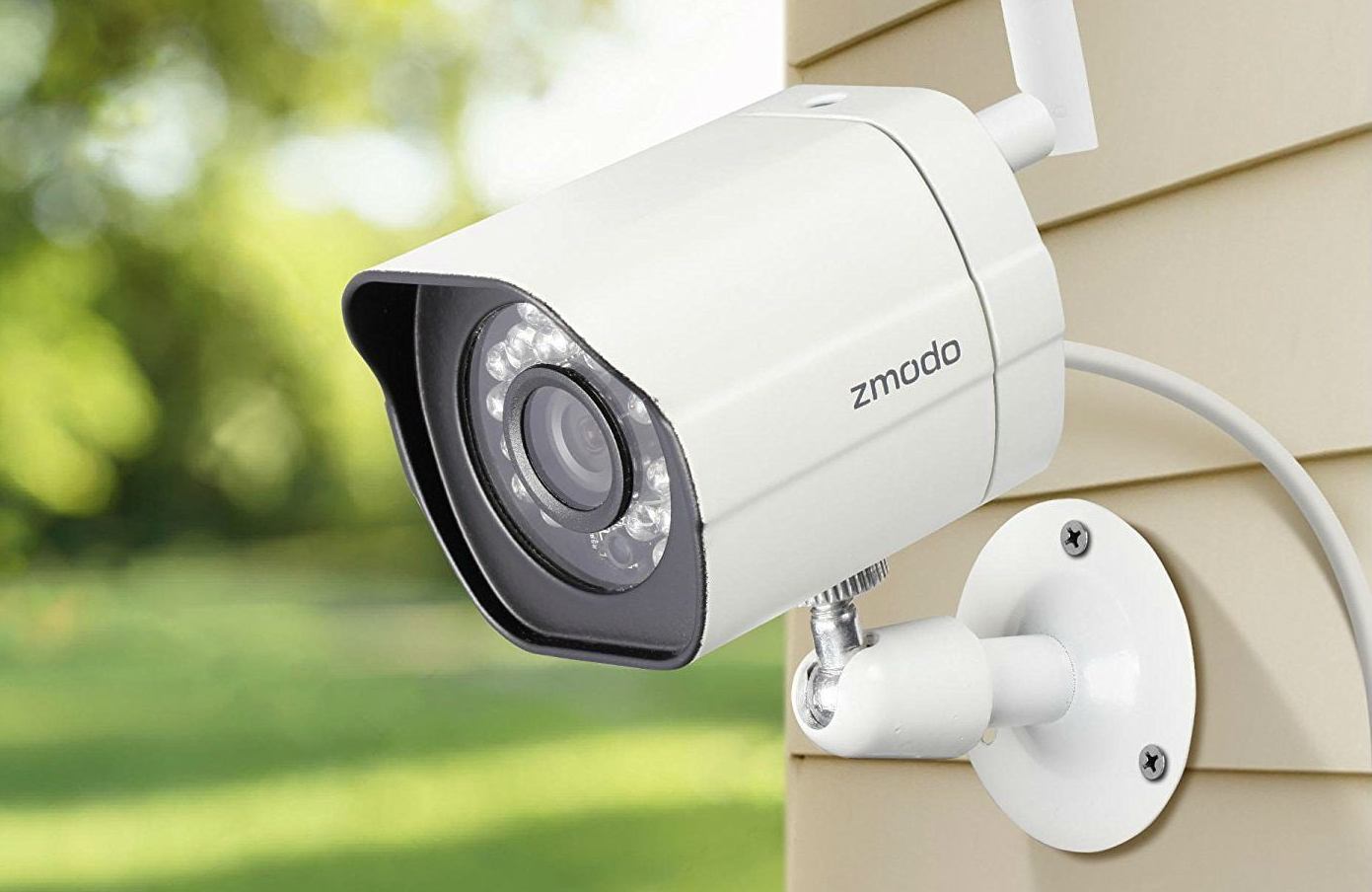

Home Security and Surveillance
What Is A Wired Security Camera
Modified: March 6, 2024
Discover the benefits of a wired security camera for your home security and surveillance needs. Enhance your peace of mind with reliable and efficient monitoring.
(Many of the links in this article redirect to a specific reviewed product. Your purchase of these products through affiliate links helps to generate commission for Storables.com, at no extra cost. Learn more)
Introduction
Welcome to the world of home security and surveillance, where peace of mind meets cutting-edge technology. In today’s fast-paced and increasingly connected world, it’s crucial to prioritize the safety and security of your home and loved ones. That’s why investing in a reliable security system is essential.
One of the most popular and effective options available on the market is a wired security camera system. These cameras provide a robust and reliable solution for monitoring your property, deterring potential intruders, and capturing crucial evidence in case of any incidents.
In this comprehensive guide, we will delve into the world of wired security cameras, exploring their functionality, benefits, drawbacks, and factors to consider when choosing the right system for your needs. Whether you’re a homeowner looking for an added layer of protection or a business owner aiming to secure your premises, this article will equip you with the knowledge you need to make an informed decision.
So, let’s dive in and uncover the power of wired security cameras!
Key Takeaways:
- Wired security cameras offer reliable, high-quality surveillance with stable video, long-distance transmission, and advanced features like night vision and motion detection. They provide peace of mind for homeowners and businesses seeking robust security solutions.
- While wired security cameras require careful installation and have limitations in flexibility, their reliability and clear video quality make them a valuable investment. Consider factors like resolution, field of view, and power source when choosing a wired security camera system.
Read more: What Is The Best Wired Security Camera
Overview of Wired Security Cameras
Wired security cameras, also known as hardwired cameras, are surveillance devices that are directly connected to a power source and a recording device through physical cables. Unlike wireless cameras that rely on Wi-Fi or other wireless technology, wired cameras provide a dedicated and secure connection, ensuring constant and uninterrupted surveillance.
Wired security cameras come in various types and designs to suit different applications. Some common types include bullet cameras, dome cameras, and PTZ (pan-tilt-zoom) cameras. These cameras are typically made with durable materials and designed to withstand the elements, making them suitable for both indoor and outdoor use.
One key feature of wired security cameras is their ability to transmit video and audio signals over long distances without signal deterioration. This is crucial for large properties or areas that require extensive coverage. Additionally, wired cameras often have higher resolutions and advanced features such as night vision, motion detection, and remote viewing capabilities.
When it comes to storage, wired security cameras typically connect to a digital video recorder (DVR) or a network video recorder (NVR). These devices allow for local storage of footage, making it easily accessible for review and backup purposes.
Overall, wired security cameras offer a reliable and robust surveillance solution for homeowners, businesses, and organizations. They provide clear and high-quality video footage, ensure a consistent connection, and offer advanced features that bolster the security of your property.
How Wired Security Cameras Work
Understanding how wired security cameras work is essential to maximize their effectiveness in protecting your property. These cameras rely on a combination of hardware and software components to capture, transmit, and store surveillance footage.
At the core of a wired security camera system is the camera itself. The camera is equipped with an image sensor, which captures video frames and converts them into a digital format. The image sensor’s quality and resolution determine the clarity of the video footage.
Wired security cameras are connected to a power source through cables, ensuring a constant and reliable power supply. The power source can be a power outlet or a power over Ethernet (PoE) connection, which allows for the transmission of both power and data through a single cable.
These cameras are also connected to a recording device such as a DVR or NVR. The recording device stores the captured footage locally, allowing you to review and analyze it at a later time. Some wired camera systems also offer the capability of live viewing and remote access, enabling you to monitor your property from anywhere via a smartphone, tablet, or computer.
To transmit video and audio signals from the camera to the recording device, wired security cameras use cables. The most common types of cables used are coaxial cables and Ethernet cables. Coaxial cables are commonly utilized in analog systems, while Ethernet cables, specifically Cat5e or Cat6 cables, are used in IP-based systems.
Once the cable is connected, the camera sends the video data to the recording device through a series of digital protocols. These protocols ensure smooth and efficient transmission of data, maintaining the quality of the footage. The data is then stored in the recording device, allowing for easy access and retrieval when needed.
Overall, the wired security camera system operates by capturing video footage, transmitting it through cables to a recording device, and storing it for future use. The seamless integration of the camera, cables, power source, and recording device ensures a reliable and efficient surveillance solution for your home or business.
Benefits of Using Wired Security Cameras
When it comes to securing your property, wired security cameras offer a range of benefits that make them a popular choice among homeowners and business owners alike. Let’s explore some of these advantages:
- Reliability: Wired security cameras provide a reliable and consistent connection. Unlike wireless cameras that can be subjected to interference from other devices or Wi-Fi signal disruptions, wired cameras offer a dedicated and secure connection, ensuring continuous monitoring.
- Stable Video Quality: With a wired connection, the video quality remains stable and unaffected by external factors. The footage captured by wired cameras is typically of higher quality and resolution, providing clear and detailed images, making it easier to identify faces, license plates, or other crucial details.
- Longer Transmission Distances: Wired cameras can transmit video signals over longer distances without loss of quality. This makes them suitable for larger properties or areas that require extensive coverage.
- Better Security: Since wired cameras are not dependent on Wi-Fi signals, they are less susceptible to hacking and unauthorized access. This provides an added layer of security and peace of mind.
- Motion Detection and Alerts: Many wired security cameras come equipped with motion detection technology. This allows the cameras to detect any movement within their field of view and send alerts to the property owner, enabling swift action in case of any suspicious activity.
- Night Vision: Most wired security cameras are equipped with infrared (IR) LEDs, allowing them to capture clear footage even in low-light or completely dark conditions. This ensures round-the-clock surveillance, both indoors and outdoors.
- Remote Viewing: With wired security cameras, you can access live video feeds and recorded footage remotely. This means you can monitor your property in real-time from anywhere in the world, using a smartphone, tablet, or computer.
- No Signal Interference: Wired security cameras are not affected by signal interference from other devices or competing Wi-Fi networks. This ensures a stable and uninterrupted connection, minimizing the risk of missed or distorted footage.
These benefits make wired security cameras a reliable and effective choice for enhancing the security of your home or business. With their stability, high-quality video, and advanced features, wired cameras provide peace of mind and a heightened sense of security.
Drawbacks of Wired Security Cameras
While wired security cameras offer numerous advantages, it is important to consider their drawbacks as well before making a decision. Here are some of the key drawbacks of using wired security cameras:
- Installation Complexity: Installing wired security cameras can be more complex compared to wireless cameras. It involves running cables through walls, ceilings, or other structures, which may require professional assistance or DIY expertise.
- Limitations in Flexibility: Once wired cameras are installed, they are fixed in place and not easily repositioned or moved. This limits flexibility if you need to change your surveillance coverage or adapt to different monitoring needs in the future.
- Potential Cable Clutter: With wired cameras, there is the possibility of cable clutter, especially in larger camera systems. Managing and organizing the cables can be challenging and may require additional effort and resources.
- Dependency on Power Source: Wired cameras require a continuous power connection. In the event of a power outage, the cameras may stop working unless there is a backup power source in place, such as a UPS (uninterruptible power supply).
- Higher Installation Costs: The installation of wired security cameras often involves additional costs compared to wireless cameras. This includes the wiring materials, labor charges if professional assistance is required, and any necessary drilling or wall modifications.
- Difficulty in Scaling Up: Expanding the surveillance coverage with wired cameras can be challenging and time-consuming. Adding new cameras to the system may require additional cabling and adjustments to the recording device, adding complexity and potential costs.
- Reliance on Local Storage: Wired cameras typically rely on local storage, such as a DVR or NVR. While this provides direct access to the footage, it also means that if the recording device is damaged, stolen, or compromised, the footage may be lost.
Despite these drawbacks, many users find that the benefits of wired security cameras outweigh the downsides, especially when it comes to the reliability, stability, and overall security they provide. It is important to carefully consider your specific needs and requirements before making a decision on which type of security camera system to invest in.
Factors to Consider When Choosing a Wired Security Camera
As you explore the options available for wired security cameras, there are various factors to consider to ensure you select the right system for your needs. Here are some key factors to keep in mind:
- Camera Resolution: The resolution of the camera determines the clarity and level of detail in the captured footage. Look for cameras with high-resolution capabilities, such as Full HD (1080p) or even Ultra HD (4K), to ensure clear and crisp video quality.
- Field of View: Consider the field of view required for your surveillance needs. A wider field of view will cover more area, while a narrower field of view may provide more detail within a specific area. Choose cameras with adjustable lenses or PTZ functionality for flexibility in adjusting the field of view as needed.
- Camera Type: Different camera types, such as bullet cameras, dome cameras, or PTZ cameras, offer unique features and installation options. Consider the specific requirements of your property and choose the camera type that best fits your needs.
- Night Vision: If you require surveillance during nighttime hours or in low-light conditions, look for cameras with built-in infrared (IR) LEDs for effective night vision capabilities. Check the camera’s IR range to ensure it covers the desired distance in complete darkness.
- Weather Resistance: If you plan to install the cameras outdoors, ensure they are designed to withstand various weather conditions. Look for cameras with an IP (Ingress Protection) rating that indicates resistance to dust and water.
- Power Source: Consider the power source requirements of the cameras. Some wired cameras can be powered through a standard electrical outlet, while others use Power over Ethernet (PoE) technology, allowing for both power and data transmission through a single Ethernet cable.
- Recording and Storage: Determine your preferred method of recording and storing the surveillance footage. Consider whether you want a local recording device, such as a DVR or NVR, or if remote cloud storage options are more suitable for your needs.
- Integration with Existing Systems: If you have an existing security system or plan to expand it in the future, ensure that the wired cameras are compatible with your current infrastructure. Choose cameras that can seamlessly integrate with other security devices or software.
- Budget: Set a budget for your security camera system and consider the overall cost, including the cameras, cables, recording device, and any additional accessories or professional installation charges. Make sure to prioritize features and functionalities based on your budget limitations.
By carefully considering these factors, you can select the right wired security camera system that aligns with your surveillance needs, property layout, and budget. Remember to conduct thorough research, read reviews, and consult with professionals if needed to make an informed decision.
Installation and Setup of Wired Security Cameras
The installation and setup process of wired security cameras may seem daunting at first, but with the right approach, it can be straightforward and manageable. Here are the key steps to follow:
- Plan Camera Placement: Before beginning the installation, carefully plan the placement of each camera. Consider the areas you want to monitor and ensure the cameras have a clear view of those locations. Take into account the field of view, coverage range, and potential obstacles.
- Check Power Source: Determine the power source for your wired cameras. If using a PoE (Power over Ethernet) connection, ensure that your network switch or PoE injector can supply power to the cameras. If using a power outlet, make sure it is accessible near the camera’s location.
- Run Cables: Start by running the necessary cables from each camera to the recording device location. Use appropriate cable management techniques to ensure a neat and organized setup. Depending on the system, you may need to run coaxial cables or Ethernet cables.
- Connect Cameras: Once the cables are in place, connect each camera to its respective cable. Ensure a secure and stable connection for both power and data transmission. Follow the manufacturer’s instructions for proper wiring and connection.
- Connect to Recording Device: Connect the other end of the cables to the recording device, such as a DVR or NVR. Ensure that the connections are secure and properly labeled for easy identification. Follow the manufacturer’s instructions for connecting the cameras to the recording device.
- Configure the System: Access the configuration interface of the recording device and set up the cameras. This includes assigning names to each camera, adjusting video settings, enabling motion detection, and configuring any desired features or settings. Consult the user manual or online resources for detailed instructions on the specific recording device.
- Test and Optimize: After the installation and setup is complete, perform tests to ensure each camera is functioning properly. Check the video quality, verify the field of view, and test any additional features such as motion detection or night vision. Make any necessary adjustments or optimizations based on the test results.
- Monitor Remotely (Optional): If you want to monitor the cameras remotely, set up remote access to your system. This may involve configuring network settings, setting up port forwarding, or utilizing a mobile app or software provided by the manufacturer. Follow the instructions provided to enable remote viewing on your preferred device.
- Regular Maintenance: Once the setup is complete, it is important to perform regular maintenance on your wired security camera system. This includes cleaning the camera lenses, checking cable connections, updating firmware or software, and reviewing footage to ensure proper functioning.
While the installation and setup of wired security cameras can be a DIY project, it may be beneficial to consult a professional if you’re unsure or need assistance. Professional installation ensures proper placement, cable routing, and system setup, maximizing the effectiveness of your surveillance system.
Remember to always follow the manufacturer’s instructions and guidelines throughout the installation and setup process to ensure a successful and reliable wired security camera system.
Maintenance and Troubleshooting Tips for Wired Security Cameras
Maintaining and troubleshooting your wired security camera system is crucial for ensuring its optimal functionality and longevity. Here are some essential maintenance and troubleshooting tips to keep in mind:
- Regular Cleaning: Dust and dirt can accumulate on camera lenses over time, affecting the image quality. Regularly clean the lenses with a soft, lint-free cloth to remove any smudges or debris. Avoid using harsh cleaning agents that may damage the lens coating.
- Inspect and Secure Connections: Periodically check the cables and connections for any signs of wear or damage. Ensure that all cables are securely connected to both the cameras and the recording device. Loose or damaged connections can cause signal loss or degraded video quality.
- Check Power Supply: Verify that the power source for the cameras is stable and functioning correctly. In case of power outages, ensure that your cameras are connected to a reliable backup power source, such as a UPS (uninterruptible power supply) system, to maintain surveillance during such events.
- Review Footage Regularly: Routinely review the recorded footage to identify any suspicious activities, potential issues, or areas that may require camera adjustment. This will help you stay informed about the security of your property and detect any malfunctions or abnormalities.
- Update Firmware: Manufacturers may release firmware updates to address security vulnerabilities, add new features, or improve system performance. Regularly check for firmware updates for your cameras and recording device and follow the manufacturer’s instructions for updating the firmware.
- Adjust Camera Settings: If you notice issues with the camera’s performance, such as poor image quality or incorrect motion detection, review and adjust the camera settings. This may involve adjusting video settings, motion detection sensitivity, or other applicable settings through the recording device’s interface.
- Check for Interference: If you experience signal interference or degraded video quality, check for potential sources of interference in the vicinity of the cameras. Wireless devices, Wi-Fi networks, or other electronics operating on similar frequencies can disrupt the camera connection and cause issues.
- Contact Technical Support: If you encounter persistent issues or are unsure how to resolve a problem, reach out to the technical support of your camera or recording device manufacturer. They can provide specific guidance, troubleshooting assistance, or further diagnostic steps to address the problem.
- Document and Label: Keep a record of the camera locations, cable routing, and any specific settings or configurations for easy reference in the future. Labeling cables and connections will help identify and troubleshoot any issues more efficiently.
Remember, proper maintenance and timely troubleshooting are essential for ensuring the effectiveness and longevity of your wired security camera system. By following these tips and being proactive in monitoring and maintaining your system, you can keep your property protected and enjoy the peace of mind that comes with a reliable surveillance solution.
Comparison between Wired and Wireless Security Cameras
When it comes to choosing a security camera system, one decision you’ll need to make is whether to go with a wired or wireless solution. Both options have their own advantages and considerations. Let’s compare wired and wireless security cameras to help you make an informed decision:
Installation
Wired cameras require running cables, which can be more complex and time-consuming. Professional installation may be recommended. On the other hand, wireless cameras are much easier to install as they only require mounting and connecting to a power source.
Reliability
Wired cameras offer a more reliable connection since they are not susceptible to wireless interference. This makes them less prone to signal loss or interruption. Wireless cameras, although more convenient to install, may experience occasional signal disruptions due to distance, obstacles, or interference from other wireless devices.
Video Quality
Wired cameras generally offer higher video quality and resolution, which is important for capturing clear details, especially in critical areas. Wireless cameras, while improving in quality, may have limitations in video resolution due to bandwidth constraints.
Flexibility
Wired cameras are fixed in one position and not easily moved or repositioned. On the other hand, wireless cameras offer more flexibility in terms of relocation since they are not tethered by cables. This can be advantageous if you plan to change the surveillance coverage or move the cameras to different locations.
Read more: How To Wire In Security Cameras
Power Source
Wired cameras need a continuous power source, either through a power outlet or Power over Ethernet (PoE) connection. Wireless cameras are usually powered by batteries or rechargeable power packs, offering the advantage of being operational during power outages. However, battery life needs to be monitored and managed.
Scalability
Expanding a wired camera system can be more challenging, as it involves running additional cables and making adjustments to the recording device. Wireless cameras, on the other hand, offer more scalability without the need for extensive rewiring. You can easily add or remove cameras to meet changing surveillance needs.
Security
Wired cameras have the advantage of being less vulnerable to hacking or unauthorized access, as they do not rely on wireless signals. Wireless cameras, while generally secure if properly configured with encryption protocols, may have potential vulnerabilities that can be exploited.
Cost
Wired cameras tend to have higher upfront costs due to the need for cables, installation, and recording devices. Additional wiring and professional installation may also incur extra expenses. Wireless cameras are usually more cost-effective, particularly for smaller surveillance setups.
Ultimately, the choice between wired and wireless security cameras depends on your specific needs, the layout of your property, and your preferences regarding installation, video quality, flexibility, and scalability. It’s important to carefully evaluate these factors and find the solution that best fits your requirements and budget.
When setting up a wired security camera, make sure to carefully plan the placement of the camera and the route for the wires to ensure maximum coverage and minimal interference.
Read more: How To Hack Into A Wired Security Camera
Conclusion
When it comes to securing your home or business, investing in a reliable security camera system is essential. Wired security cameras offer numerous benefits that make them an attractive choice for many. Their reliability, stable video quality, longer transmission distances, and better security make them a preferred option for those who prioritize consistent surveillance and high-quality footage.
While there are some drawbacks to consider, such as the complexity of installation and limitations in flexibility, these can often be mitigated with proper planning and professional assistance if necessary. The maintenance and troubleshooting tips provided can help ensure the continued optimal performance of your wired security camera system.
On the other hand, wireless security cameras offer greater flexibility in terms of installation and ease of use. They are often more cost-effective for smaller setups and can provide some level of mobility if you need to relocate your cameras.
Ultimately, the choice between wired and wireless security cameras depends on your specific needs, preferences, and budget. Consider factors such as the desired video quality, installation complexity, reliability, and scalability before making a decision. It may also be beneficial to consult with security professionals or experts in the field to guide you through the selection process.
Regardless of whether you choose wired or wireless security cameras, investing in a robust surveillance system enhances the safety and security of your property. The peace of mind that comes with knowing your loved ones or business assets are protected is invaluable.
So, take the time to research, evaluate your requirements, and find the security camera system that best meets your needs. With the right choice and proper installation, you can enjoy enhanced security and surveillance for years to come.
Frequently Asked Questions about What Is A Wired Security Camera
Was this page helpful?
At Storables.com, we guarantee accurate and reliable information. Our content, validated by Expert Board Contributors, is crafted following stringent Editorial Policies. We're committed to providing you with well-researched, expert-backed insights for all your informational needs.
